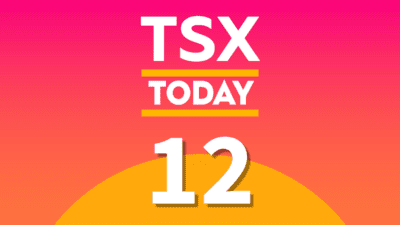Hudson’s Bay Co (TSX:HBC) executive chairman and majority owner Richard Baker took the company public a little more than four years ago at $17 a share; today, it’s trading below $14—a level it’s never seen.
Is it a deep value or a deep-value trap? If we truly knew the answer to that question, we’d all be rich.
Laugh if you will, but I believe HBC’s stock is the TSX’s best deep-value play—bar none. Here are my five reasons why.
Reason #1
HBC IPO’d at a market cap of $2 billion. That was based on 2011 EBITDA of $309.3 million and $3.8 billion in annual revenue—a valuation of 6.5 times EBITDA and 0.53 times sales.
Today, it has a market cap of $2.4 billion based on $632 million EBITDA and $13.6 billion in revenue—a valuation of 3.8 times EBITDA and 0.18 times sales.
When it went public back in 2012, HBC’s department store group consisted of Hudson’s Bay in Canada and Lord & Taylor in the U.S. That was before Saks, Galeria Kaufhof, HBC Europe, Gilt Groupe, its two real estate joint ventures, and the sale of Zellers’s leases to Target for $1.8 billion.
While department stores have had a pretty topsy-turvy go of it since HBC’s IPO, I think it’s fair to say that the company has changed significantly in those four years, and, although it’s a work in progress, I find it hard to believe that only $400 million in additional market cap has been generated by all the moves made by the company.
Reason #2
Its Saks Fifth Avenue flagship property in New York was independently appraised in 2014 at US$3.7 billion. At the time, it took out a 20-year, US$1.25 billion mortgage on the property, which it used to pay down an existing US$1.2 billion term loan. Today, that mortgage is on the books for $1.7 billion in Canadian dollars—the same amount as back in 2014.
Either the 2014 appraisal was massively overvalued, or the Saks flagship is today worth even more.
Reason #3
HBC CEO Jerry Storch recently highlighted the company’s $60 million robotic fulfillment centre in Toronto, which will increase the speed at which it ships orders to customers creating a truly all-channel retail model.
In its Q3 2016 earnings release, lost amid the same-store sales decline was the news that its digital sales in the quarter increased 73% year over year with total digital same-store sales increasing 5.4% on a constant-currency basis. Even better, its legacy HBC digital sales increased 12.9% on a constant-currency basis, demonstrating that it is growing its online business across all its banners and price points.
Reason #4
Richard Baker’s plan is to be a global industry consolidator, buying undermanaged retail operations for a good price, and then finding the revenue and cost synergies necessary to deliver market-leading returns on invested capital.
When HBC went public in 2012, it generated 64% of its annual revenue from Canada. Today, that’s down to 21% and falling. By building a revenue model that’s geographically diversified, the company no longer has to lean on the Canadian economy for its very survival.
HBC is still digesting its European acquisition and the organic opening of 20 HBC Europe stores in the Netherlands, so I’d look for Asian expansion by 2018.
Reason #5
Richard Baker’s background is in real estate. Eventually, he’s going to create a REIT to hold some of the company’s valuable real estate. In the meantime, its two joint ventures (JV) with Simon Property Group and RioCan will continue to deliver value from the redevelopment of the properties included in both JVs.
Bottom line, HBC’s real estate is valued on the balance sheet at $5.4 billion. Its long-term debt is $4.1 billion. Right there, you’ve got $1.3 billion in intrinsic value, and that doesn’t begin to address the Saks flagship.
Analysts value its real estate at $30 per share, which means the retail operations are valued at -$16 per share at current prices. Its outlook for adjusted EBITDA in fiscal 2016 is at least $700 million. If HBC stock traded for 6.2 times EBITDA, as Nordstrom does, HBC would be a $24 stock, not a $14 stock.
By my books, HBC stock is undervalued by 40%—perhaps more. I’d say that constitutes deep value—wouldn’t you?







